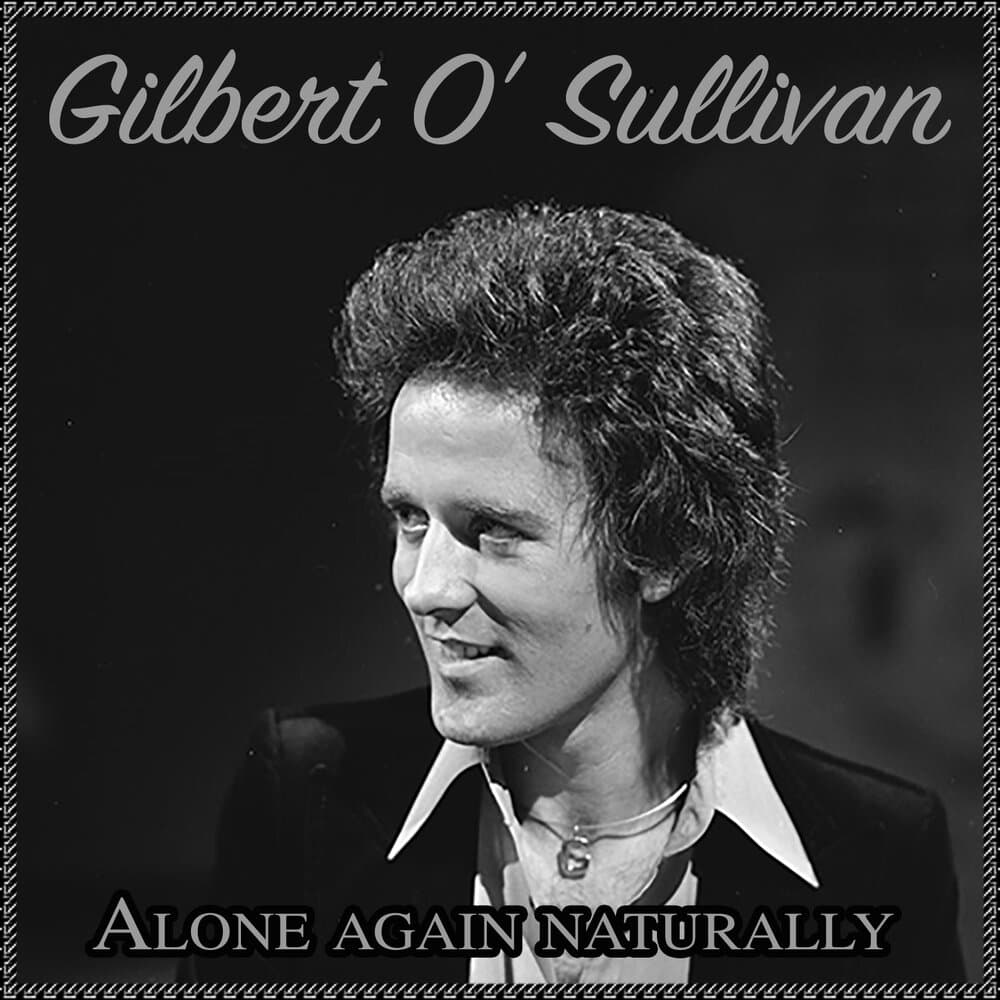
Gilbert O’Sullivan’s “Alone Again (Naturally)”: A Bittersweet Anthem of Heartache and Resilience
“Alone Again (Naturally)” by Gilbert O’Sullivan is a song that perfectly captures the delicate balance between sorrow and survival. Released in 1972, this poignant ballad became a massive hit, reaching number 1 on both the Billboard Hot 100 and the Cash Box Top 100 in the United States, while also topping charts internationally. With its melancholic lyrics set against a deceptively light melody, “Alone Again (Naturally)” is a powerful reflection on loss, loneliness, and the enduring human spirit.
The song opens with a gentle piano melody that immediately sets a reflective tone. O’Sullivan’s distinctive voice, soft and slightly wistful, enters with the lines, “In a little while from now / If I’m not feeling any less sour,” signaling a story that will delve deep into personal anguish. As the narrative unfolds, the listener is taken on a journey through the singer’s emotional landscape, where he contemplates abandonment, depression, and even thoughts of suicide.
The lyrics of “Alone Again (Naturally)” are strikingly candid, detailing the narrator’s experiences with heartbreak and grief. The first verse speaks to the pain of being left at the altar, a moment of profound vulnerability and rejection. As the song progresses, O’Sullivan expands the narrative to include the loss of his parents, particularly his mother’s death, which he describes with heartbreaking clarity: “Left standing in the lurch at a church / With people saying, ‘My God, that’s tough, she stood him up.'” This raw honesty gives the song an emotional depth that resonates deeply with listeners who have experienced similar pain.
What makes “Alone Again (Naturally)” truly remarkable is its ability to blend this deep sense of melancholy with a subtle undercurrent of resilience. Despite the heavy subject matter, the song’s melody is light and almost cheerful, creating a stark contrast that only heightens the emotional impact. This juxtaposition between the music and lyrics mirrors the complexity of human emotions, where even in the darkest moments, there is a glimmer of hope or a sense of endurance.
Musically, the arrangement is simple yet effective, allowing O’Sullivan’s voice and the lyrics to take center stage. The piano plays a central role, with its gentle, flowing chords providing a soothing backdrop to the lyrical content. The orchestral strings, which enter at key moments, add a layer of emotional intensity, particularly in the chorus, where the full weight of the song’s themes comes to the forefront.
“Alone Again (Naturally)” was a critical and commercial success, becoming one of the biggest hits of 1972. It was nominated for three Grammy Awards, including Record of the Year and Song of the Year, and it established Gilbert O’Sullivan as a significant voice in the singer-songwriter genre. The song’s universal themes of love, loss, and the search for meaning have ensured its lasting appeal, making it a timeless classic that continues to resonate with new generations of listeners.
O’Sullivan’s ability to convey such deep emotion through his music has made “Alone Again (Naturally)” a touchstone for those grappling with similar feelings of loneliness and despair. The song has been covered by numerous artists over the years, each bringing their own interpretation to the haunting lyrics and melody. Yet, it is O’Sullivan’s original recording that remains the definitive version, a testament to his unique talent for blending melancholy with melody.
In conclusion, Gilbert O’Sullivan’s “Alone Again (Naturally)” is a poignant exploration of the human experience, capturing the heartache of loss and the resilience needed to carry on. Through its introspective lyrics and gentle melody, the song offers a powerful reminder of the strength it takes to endure life’s most difficult moments. “Alone Again (Naturally)” is not just a song of sorrow; it is also a song of survival, resonating with anyone who has ever felt alone, but found the courage to continue moving forward. This balance of vulnerability and strength is what has made the song an enduring classic, loved by listeners around the world for more than five decades.